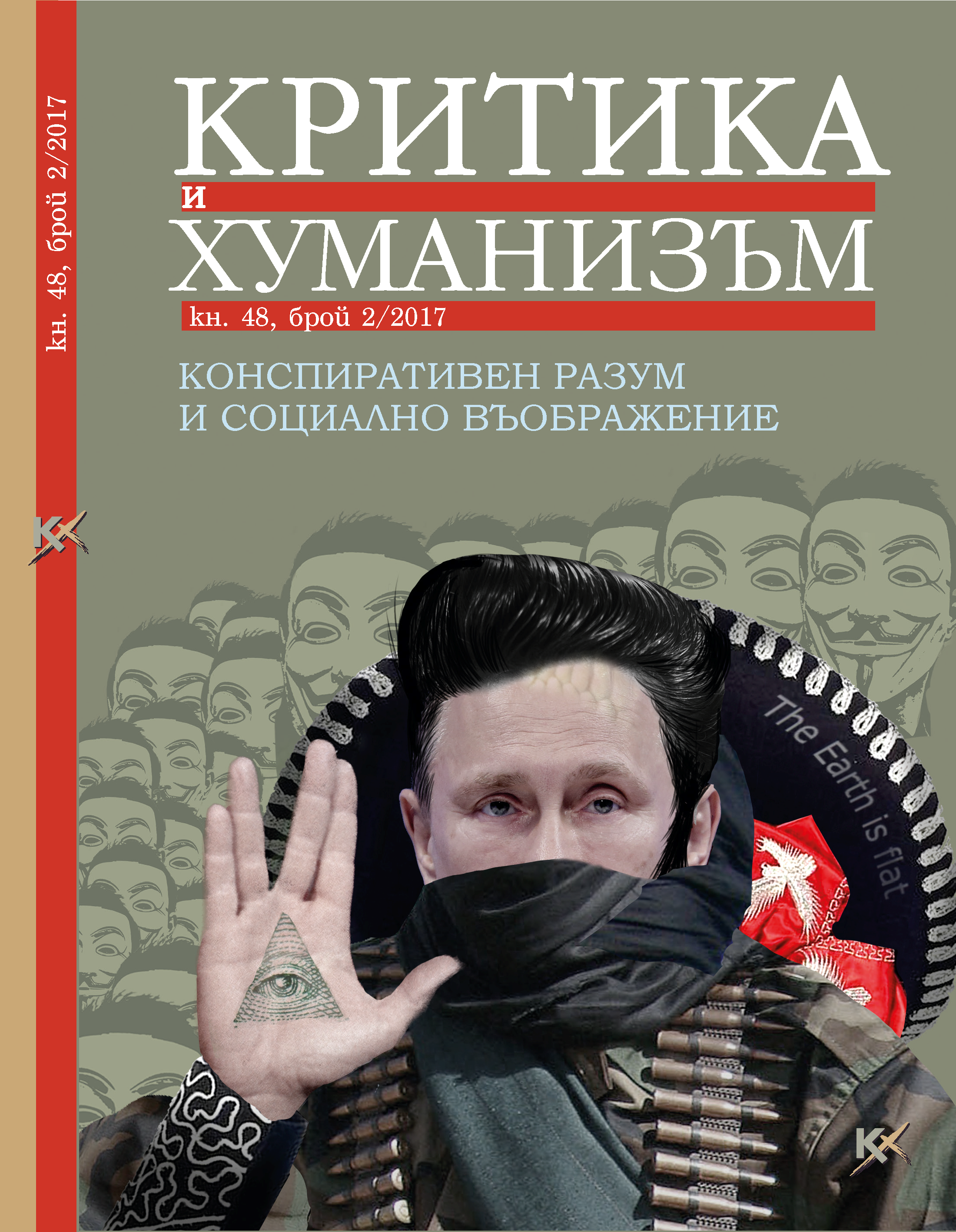Техноконспирации: страшната страна на дигиталното сублимно
Techno-Conspiracies: The Alarming Side of the Digital Sublime
Author(s): Julia RoneSubject(s): Social Sciences, Sociology, Social psychology and group interaction
Published by: Фондация за хуманитарни и социални изследвания - София
Keywords: Techno-conspiracy; techno-fetishism; digital utopias; digital sublime; American elections 2016; hacking; Trump; Clinton
Summary/Abstract: The current paper situates the scare around the “Russian hacking of the US elections” in a historical line of utopias and dystopias of the digital age. By tracing the genealogy of beliefs about the Internet and democratization, I show how the initial euphoric embracement of cyber-space as revolutionizing politics has been inverted in more recent narratives about the Internet and the death of democracy. In the shadow of figures such as hackers, bots, and trolls spreading disinformation, both Democrats and Republicans have created their own conspiracy theories around the leaking of DNC emails. By analysing a Reddit thread that attempts to be “neutral” amidst an increasingly polarized political debate, I show how difficult it is to avoid relapsing in conspiracy theories considering the absence of publicly available decisive evidence, the diminished trust in institutions, and the amenability of technological trails to falsification and multiple interpretations. Thus, apart from laying a claim on the right to know and tell political truths, conspiracy theories point also to the impossibility of attaining, in a rational and categorical way, a truth that is passionately sought. Ultimately, I argue that interpreting the outcome of the US elections as the result of a secret technological intervention is a form of techno-fetishism that overlooks much more complex political and economic factors.
Journal: Критика и хуманизъм
- Issue Year: 2017
- Issue No: 48
- Page Range: 105-131
- Page Count: 27
- Language: Bulgarian
- Content File-PDF

